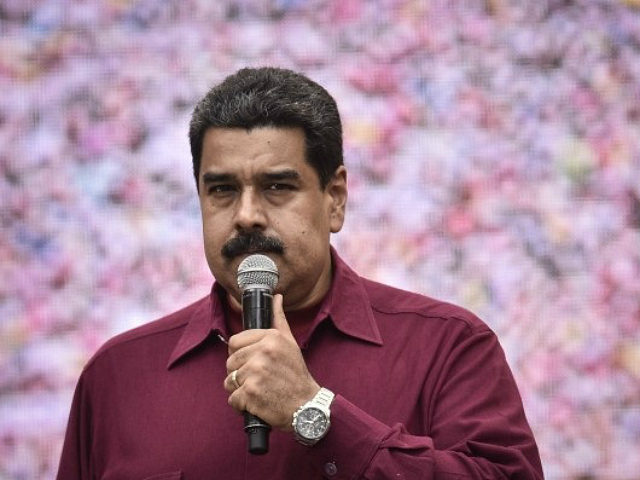Venezuela’s dictator Nicolás Maduro did not attend a hearing at the nation’s legislature Tuesday, to which he was summoned for gross violations of the Constitution in his treatment of the opposition.
The opposition-controlled National Assembly summoned Maduro for a hearing to determine whether Venezuela’s government’s handling of a constitutional recall petition for a new presidential election violated the nation’s constitution. The hearing, a sort of impeachment trial, was to occur on Tuesday, but Maduro did not appear.
In statements Tuesday, Maduro rejected the hearing as “a violation of the Constitution.” “I am prepared to speak to the opposition, but not to violate the Constitution… I would like to meet without cameras, in private,” Maduro told reporters.
The Venezuelan Constitution does not provide a legislative impeachment process the way the constitutions of the United States or, famously, Brazil do. Instead, the Constitution allows for a hearing to determine whether the president has abandoned his “political responsibility” to the office, which is the procedure the National Assembly has called for. The opposition argues that the flagrant human rights abuses against dissidents during Maduro’s tenure, coupled with an economy collapsing under strict socialist policies and a growing famine, constitute an abandonment of the responsibilities of the office of the presidency.
In addition to refusing to meet the National Assembly on Tuesday, Maduro launched his new radio program, Salsa Time.
While the controversy surrounding the summon to the legislature continued, Pope Francis once again called for a “dialogue” between the opposition and the dictatorship. “Dialogue is the only way through all conflicts,” the pope said Tuesday. “If there are no talks, there is only screaming, and no solution. I, from my heart, bet everything on dialogue.”
Both Maduro and the opposition have agreed that the Holy See should play a role in any dialogue. The opposition has argued, however, that the Maduro government’s arbitrary rejection of their constitutional right to recall the president — along with his policy of keeping prisoners of conscience detained and using force against unarmed protesters — renders any attempt at dialogue useless.
Last week, Pope Francis welcomed Maduro at the Vatican while Catholic representatives met with Jesús Torrealba, the leader of the National Assembly’s opposition wing. Pope Francis called for talks with the socialist government as National Guard troops and Chavista gangs, known as “colectivos,” attacked unarmed dissidents and attempted to “lynch” opposition legislators, according to eyewitness reports.
Following the rejection of the recall petition, the government attempted to prevent an Assembly session from happening by blockading the legislative building and temporarily shutting off its lights.
The UN Human Rights Committee has taken note, demanding Tuesday that Venezuela allow international observers into the country to monitor the developing political crisis. Among the most vocal supporters of sending observers were the governments of the UK and Spain.

COMMENTS
Please let us know if you're having issues with commenting.